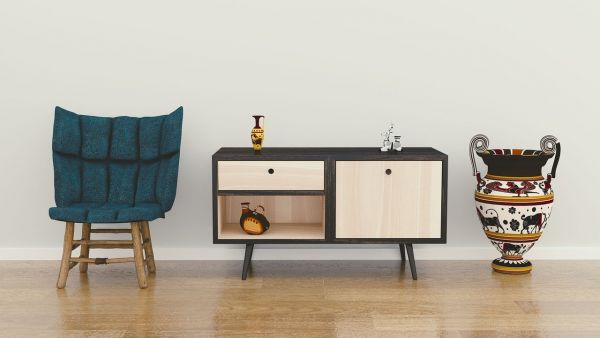Everyone wants to have a fulfilling and rewarding job that touches the day to day lives of others. However, most people think professions like medicine, technology, entertainment, or other highly visible professions, are the ones who have a daily impact on individuals. But there are careers where your work infiltrates the most intimate spaces of a person's life without having to go through years of school, come up with the next billion-dollar idea, or make a name for yourself in Hollywood. One such craft is furniture design and fabrication.
Just ask anyone who loves to come home to their favorite chair or sofa at the end of the day. That's pretty much everyone. Nearly every house, apartment, and lobby, has a central piece of furniture that is a favorite among many. Upon moving to a new house, what do people do? They buy new furniture. It’s not one of those things you can pick mindlessly. Those who design and build furniture enter people's homes not only with something useful but something others carefully choose in order to express themselves, their style, and their personalities to anyone who crosses their threshold.
If you've got an itch for something like this and welcome the rewarding nature of working with your hands, here are some things to think about.
Education
As you'll see on job sites, furniture makers are often only required to have a high school diploma. Though you won't need to go to a four-year college for it, you can seek out technical instruction, licenses, and certifications that will increase your knowledge and skills in the work and may make it easier for you to find a fulfilling job. If an employer requires formal education, it will likely be through technical schools.
Building things with your hands is not something you can learn from a book. In most cases, people learn a trade like fabrication by practicing it. You may also be able to find an apprenticeship under skilled craftsmen who are already working in the field.
Skills and Abilities
Many of the skills needed to build furniture can be learned, but the abilities that no one can teach you are critical to success in the industry. For example, color vision is necessary for someone who wants to design furniture because you need to work with a range of colors. You also need technical skills like being able to read a blueprint and use dangerous tools. Another inherent quality is hand-eye coordination and dexterity. You must be strong and steady enough to work with large pieces of heavy materials. You should also have basic math skills like arithmetic and geometry. Other than these basic qualities, most other requirements can be taught in a training program or learned on the job.
The Right Company
Nothing kills a passion project like a bad work environment. No matter how prepared you are, do some research into companies before you apply for jobs. For example, if you were considering applying for work at Joybird, an online custom furniture store, you would want to look up what previous employees have to say about their time there. You would also want to find customer reviews so you know the quality of work that Joybird professionals are known for. Then repeat this process for any prospective job you want to apply for until you have a shortlist of jobs you're excited about.
Start Your Own Business
Don't worry if you can't find the perfect fit in another company. You don't have to work for someone else to build furniture and make a living. Plenty of craftsmen live off their trade and own their own business. Furniture design and fabrication is a great field for entrepreneurial minds. Don't be afraid to take a risk and go your own way once you've developed the skills to do beautiful work. No matter which path you choose, you can put beauty into homes everywhere.

